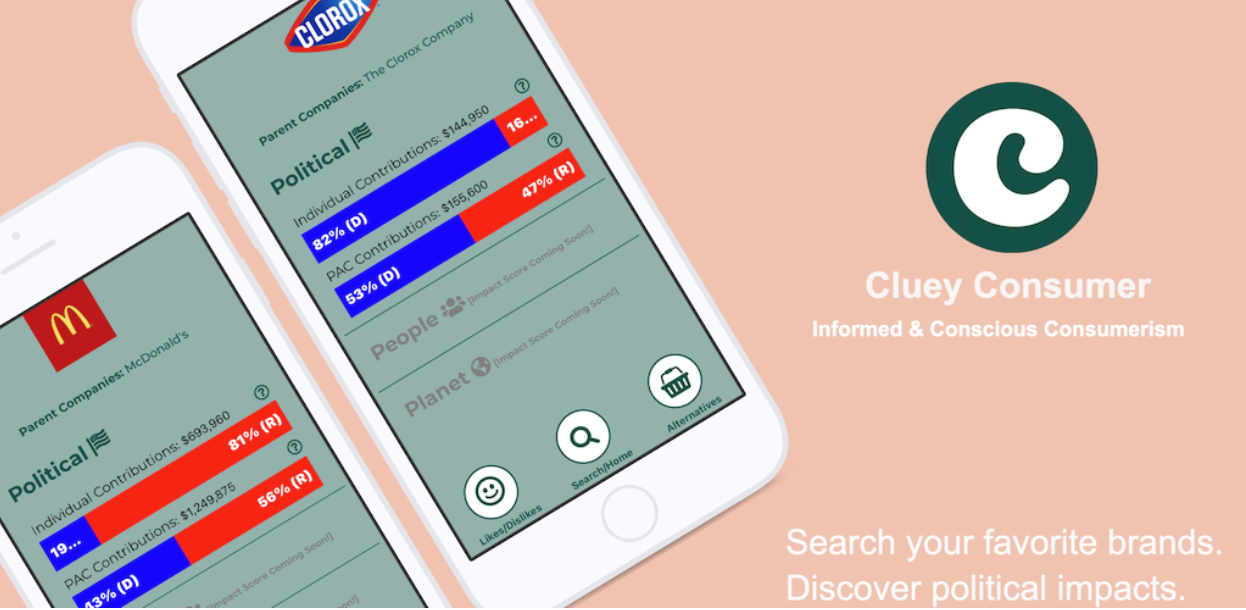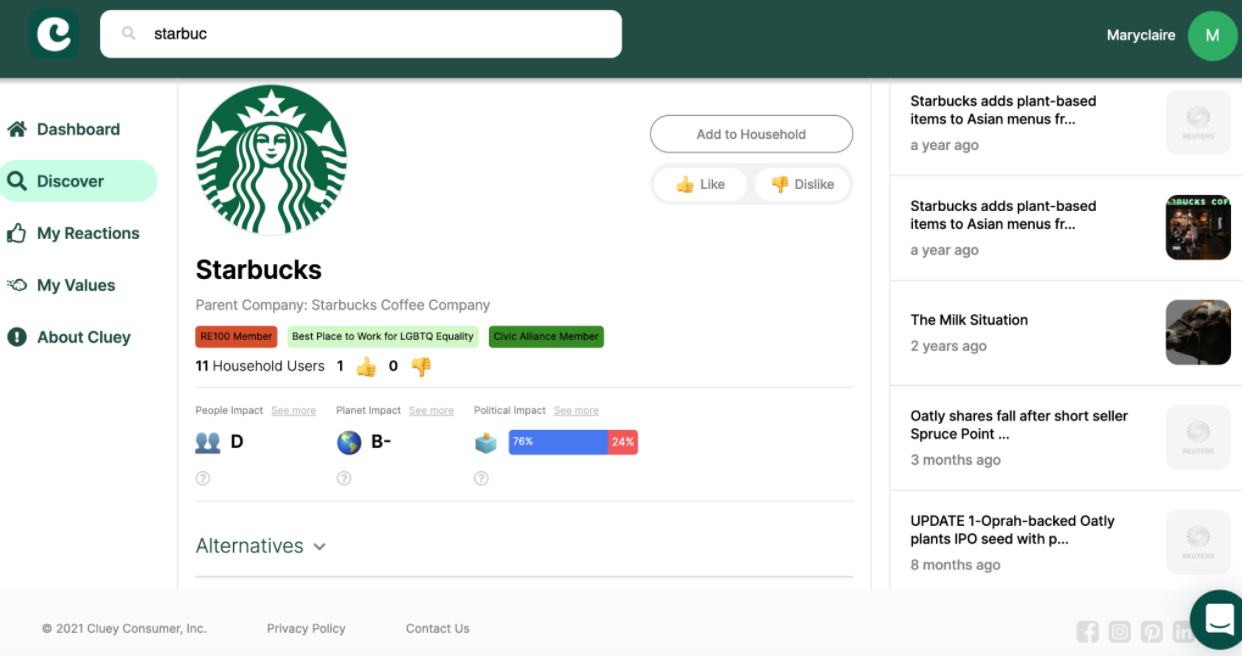By Maryclaire Manard
Choosing to leave a stable job before the start of a global pandemic left me with ample free-time and anxious thoughts… As with many others, I did what I could to stay positive and keep myself distracted from the impending doom through things like zoom catch ups and experimental cooking.
But turns out that trying to distract myself from the news of the world around me was futile. So instead, I did what I knew how to do best as a former journalist and corporate researcher, which was the exact opposite of seeking distraction from the issues of the day.. I ferociously began consuming and researching in a constant barrage of jarring daily headlines, I engaged with experts and people smarter than me on the topics I didn’t understand, I spoke with friends to process the issues I was unpacking, and I volunteered as a researcher for non-profit organizations who could use the extra help in finding insights to drive impact. It was mentally exhausting, but it was like satisfying an itch and I couldn’t stop. My 2020 coping method was to go down the rabbit hole and unpack systems of information and ideas to make them more palatable for myself and for others so I could feel useful, like I was helping in some way.
That year presented no shortage of highly important issues and topics to dig deep on. And there was one issue in particular, which seemed to span all the others: the disproportionate impact that corporations have on our society. You saw it with the mobilization of the private sector during the pandemic, how essential workers were treated, the countless statements of solidarity and commitments to improve during our nation’s continued re-reckoning with racial injustice, and the political endorsements and contributions during what was easily one of the most intense election cycles in our nation’s history.
Even more notably, I began to think about the power that I had in my wallet, and the fact that I gave that power away to companies on a daily basis. I already had a sense of this independent consumer power as I was a few years into my own journey of shifting buying habits — I had a long list of companies I had either personally boycotted or considered boycotting because they contributed to politicians who I did not support, or they treated their workers inequitably, or they were carelessly destroying our planet.
But I realized, my process of discerning which companies I would and would not buy from based on my values was disorganized, at times ill-informed, and wasn’t effective in creating any change at a larger scale.
Then I thought that I couldn’t be alone in feeling this, and that countless other consumers like me, wanted their individual changes to mean something too… and that was my ah-ha moment.
The true potential of the power I had as a consumer, if my actions were targeted, based in quality research, and most importantly if they were combined with the collective actions of other impact-conscious consumers, felt like the discovery of a new energy source and I couldn’t shake it.
So I thought, if not now, when? I have the skillset to build a solution to this problem. And the idea of Cluey was born.
What happened next?
As with any startup journey, Cluey’s has had just as many, if not more, downs than ups. Knowing that this wasn’t the first time this effort had been made wasn’t the most encouraging thought either. Buying clubs, previously failed apps, and other organizations who have tried to focus consumer buying power aren’t new by any means, but none have really succeeded to harness this potential power from disparate actions into aggregated and focused impact.
At the same time though, it was easy to see that the tides of consumer sentiment and technological capabilities have changed. Take what happened this past year with GameStop, for example, fueled by retail traders (aka, the “little guys” in the investing world) who had access to technologies like Robinhood and Reddit that empowered them with the tools to literally move the stock market. That’s huge.
So despite the perceived barriers, I pressed on with building Cluey.
I started by launching an early prototype ahead of the 2020 elections. I worked with a small group of collaborators to build a mobile app where you could search just about any brand you’d buy at your grocery store or drug store and discover the political contributions from that brand’s associated corporate Political Action Committee (PAC) and executive level leadership to politicians in the two major U.S. political parties. For example, 75% of Brand X’s corporate donations go to Republican candidates, and 25% go to Democrats. So seemingly trivial decisions about which comparably-priced two-ply toilet paper brand you bought could feel like you were doing a little bit more in your day-to-day to drive change that was aligned with your personal values.
Picture of our early stage prototype focused only on political impacts
Although it was an early-stage and rather basic app, our users loved it. 98% of our early adopters were returning and frequent users on the app, and when I spoke with some of them, they mentioned Cluey had become a part of their weekly trip to the grocery. Our app downloads also spiked during election week, over Thanksgiving (when tense political discussions with family were high), and following January 6th. What these spikes in downloads told me was that these consumers had a deep, emotional desire to engage in meaningful action during times of conflict, and Cluey provided them with an outlet for action.
Where is Cluey now?
I knew that Cluey couldn’t just be about politics, as political contribution data only provided a limited view into corporate impact. Plus, our early users expressed a desire to see more.. What else were the companies behind their favorite brands doing? How were they treating people and the planet? So this is when I went back to the drawing board. The world of corporate impact data is still relatively nascent, and there isn’t exactly a holistic measurement tool out there for all consumer brands..So building this was going to be quite the undertaking, and would require resources, consultation with experts, and a well-equipped team.
A huge moment of accelerating this process came when I received a scholarship to be a part of a founder fellowship with On Deck. This opened my network to talented professionals and investors. Another moment came when my former employer, AlphaSights, provided me with highly valuable access to consult within their network of industry experts to think through how all the pieces would fit together. And of course, additional credit also goes to so many members of my personal network who offered to help out with no strings attached, consult with me, provide feedback, and make valuable connections. Once a team of Cluey collaborators was formed, we began building Cluey 2.0
What we’re building now is a website platform (that’s accessible via mobile devices) plus a Chrome extension that allows you to search and add all of the consumer brands in your home, discover their impact, and make conscious swaps based on the personal values you care about most. The browser extension works as a supplementary tool to your Cluey account, allowing you to add brands and discover impacts as you surf the web.
Additionally, Cluey users can “like” or “dislike” brands based on what they learn about a brand’s impact. This is probably the most impactful feature of what we’ve built, as this sentiment sharing, ultimately is what will influence brands to make changes based on targeted consumer feedback. All sentiments shared by our users are aggregated and anonymized so you can see where the critical mass of consumer sentiment is trending across brands on our platform.
Picture of Cluey today, a comprehensive database of everyday brands showcasing impacts on people, the planet, and politics, recent news, and alternative brands
Why now? Will it really make a difference?
For the average consumer, ditching a favorite brand because of social, environmental, or political impacts may not be the current default in practice. Sure, people discuss corporate impacts heavily on social media, but undeniably, by and large, data shows that most consumers still prioritize top factors like price and convenience over personal values when shopping. So clearly, this exhibits an attitude-behavior gap.. In other words, people may talk the talk, but they haven’t fully mastered walking the walk.. yet.
So why on earth would we be building Cluey knowing that? Because Cluey, and other companies like Cluey provide the pathway to empowering consumers to make this change. And without a doubt, consumers want to make this change, and that desire is only growing. Amongst “fringe” consumers (the cutting edge consumers who adopt trends years ahead of the mainstream), and millennial and gen z consumers, this movement is growing. 83% of millennials want brands to align with their values, and 78% of consumers want to exert their power on brands to change and make society better.
You know the saying, where there is a will, there’s a way? Cluey is here to help pave the way.
By making the information on brand impacts more accessible to the everyday consumer, showcasing clear alternatives, and visualizing how individual actions contribute to collective impact, we can empower this deep desire to make a greater impact through everyday actions.
Let’s do this! How do I sign up?
Sign up today at www.clueyconsumer.com (it’s free) and become a member of the new age of consumer information – help us change the world!
Maryclaire is the CEO and Founder of Cluey Consumer. She started Cluey out of her personal frustration with the inconvenience and difficulty of aligning consumer behavior with personal political, social, and environmental values.

